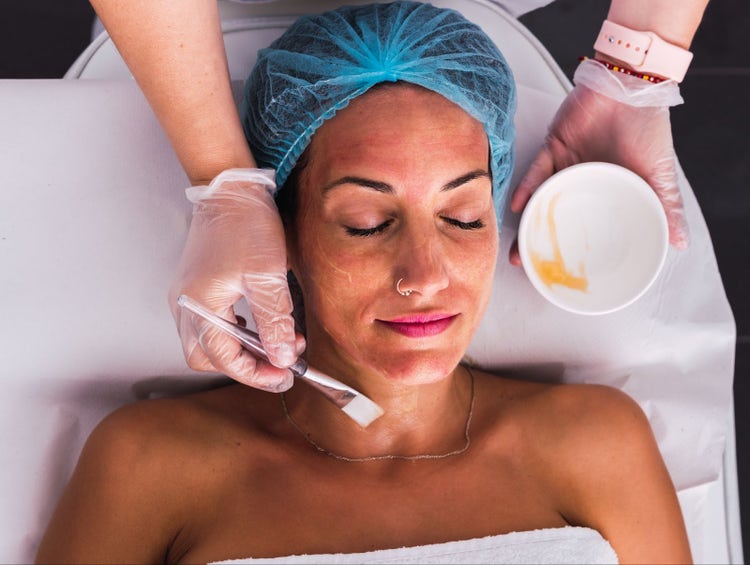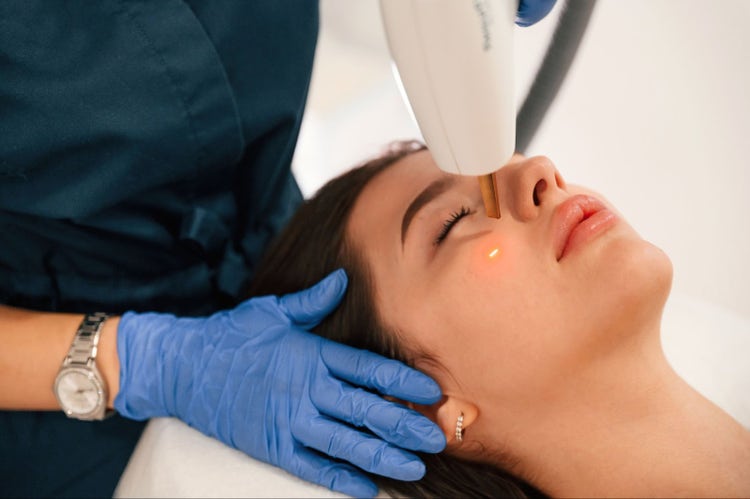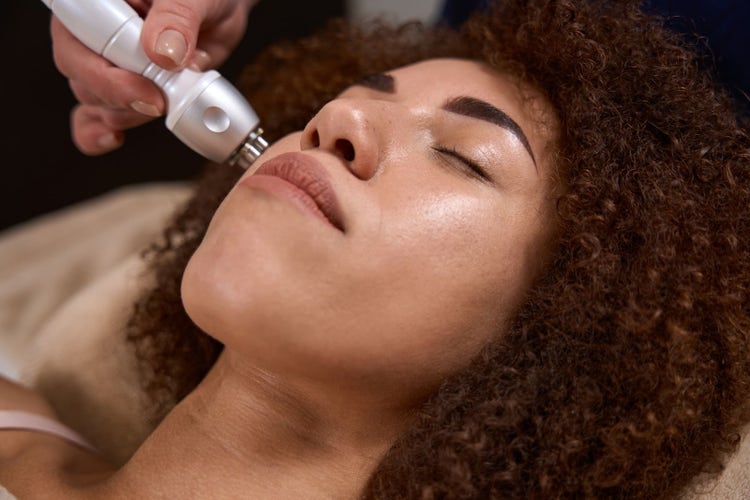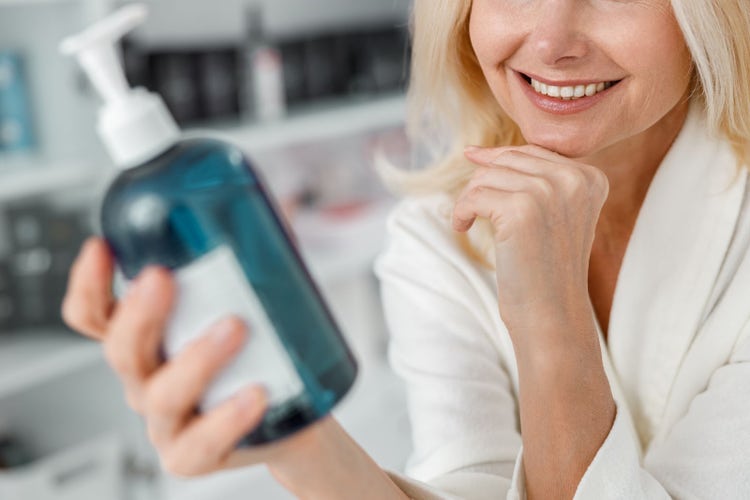Skin Whitening Treatment
Topical Creams and Lotions: There are various over-the-counter and prescription-based creams and lotions available that contain ingredients such as hydroquinone, kojic acid, arbutin, vitamin C, and retinoids. These ingredients work to inhibit the production of melanin, the pigment responsible for skin color, thereby helping to lighten dark spots and even out the skin tone. It's important to use these products under the guidance of a dermatologist to ensure safety and effectiveness.


Chemical Peels involve the application of a chemical solution to the skin, which exfoliates the outermost layer and stimulates cell turnover. Chemical peels can help reduce the appearance of hyperpigmentation and improve skin tone. Different types of peels, such as glycolic acid, salicylic acid, or trichloroacetic acid (TCA), may be used depending on the specific skin concern and desired outcome. These treatments are typically performed by dermatologists or licensed skin care professionals.
Laser Treatments for skin whitening utilize specific wavelengths of light to target and break down areas of hyperpigmentation. This process helps to stimulate collagen production and encourages the growth of new, lighter skin cells. Laser treatments can be effective for treating larger areas of pigmentation or overall skin lightening. It's essential to consult with a dermatologist or a trained professional to determine the most suitable laser treatment for your specific needs.


Microdermabrasion as mentioned earlier, is a non-invasive exfoliation procedure that can help improve skin texture and tone. While it may not directly target hyperpigmentation, regular microdermabrasion treatments can promote cell turnover and enhance the effectiveness of other skin whitening products or treatments used in conjunction.
Sun Protection : Protecting your skin from excessive sun exposure is crucial for maintaining a lighter and more even complexion. Sunscreen with a high SPF (sun protection factor) should be used daily, even on cloudy days. Additionally, wearing protective clothing, hats and seeking shade can further prevent sun damage and the darkening of the skin.

Glutathione is a naturally occurring antioxidant found in the body that plays a crucial role in various physiological processes. It is composed of three amino acids: cysteine, glutamic acid, and glycine. While glutathione is primarily known for its antioxidant properties, it has gained popularity for its potential skin lightening effects when taken orally or administered intravenously. Here's what you should know about glutathione and its role in skin lightening:

Antioxidant Properties: Glutathione functions as a powerful antioxidant in the body, helping to neutralize harmful free radicals and protect cells from oxidative damage. It supports overall skin health by reducing oxidative stress and preventing signs of aging caused by environmental factors.